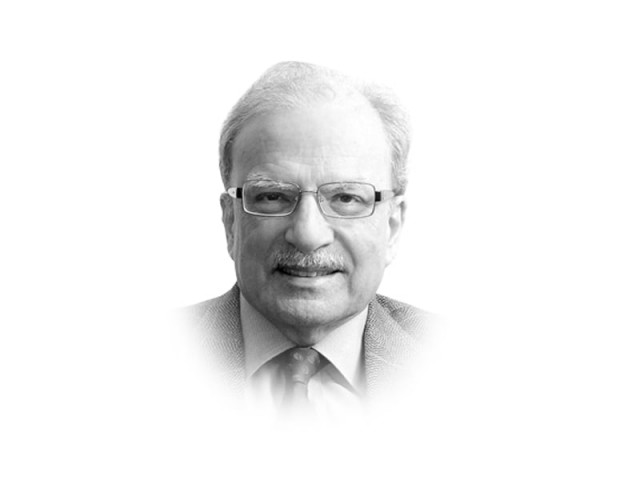Repositioning Pakistan
Economic compulsions and personal preferences have played a big role in the making of Pakistan’s external relations

The writer is a former caretaker finance minister and served as vice-president at the World Bank
As has been the case since August 1947, Pakistan has been dependent on outside help to manage and develop its economy. Very little effort was made by the several administrations that governed from Karachi, the country’s first capital, and Islamabad, to increase the proportion of domestic resources needed by the economy. Until the time the country is able to raise its very low rate of domestic savings, it will have to obtain resources from the outside. To whom should the policymakers turn?
The first generation of Pakistani leaders correctly read the evolving global situation. The Second World War had left the US the dominant global and economic power. This reordering of the global order was recognised by the world leaders who met in the small hillside resort of Bretton Woods in New Hampshire, US, to establish the institutional base for managing the global economy. Although British economist John Maynard Keynes was a big presence at the meeting, the show was stolen by the US. Its delegation led the attempt to give the world three institutions to manage the world economy. The International Monetary Fund (IMF) was created to ensure that the world and its states did not plunge into financial crises as had happened in the period leading up to the Second World War. Keynes had written an influential book arguing that economics and finance were important reasons why the European nations went to war in 1939. The IMF will have the mandate and the resources to prevent that from happening.
The Bretton Woods conferees also agreed to establish the International Bank for Reconstruction and Development (IBRD). The ‘reconstruction’ in the bank’s name referred to the need to help the countries that were ravaged by the six-year long war. The ‘development’ in the title saw that the countries that were likely to emerge from under colonial rule would need financial resources to grow their economies. The US had never been a fan of colonial rule and was urging Britain and France to give independence to their colonies in Asia and Africa. The IBRD later developed into the World Bank Group (WBG). Its success led to the establishment of such regional banks as the Asian Development Bank, the Inter-American Development Bank, the African Development and the Islamic Development Bank.
Bretton Woods would have also liked to create an institution for managing global trade. The conferees soon found out that international trade was a harder nut to crack than providing resources for global financial stability and economic development. It took another 50 years before the World Trade Organisation could be developed. In the meantime, a body called the General Agreement on Tariffs and Trade oversaw the several rounds of global trade negotiations.
Since the US provided most of the resources for the IMF, the WBG, and the regional banks (except the Islamic Bank), it was a major influence on the shaping of their lending and support policies. Over time, however, the proportion of the ‘quotas’ it held in the IMF and its contribution to the share capital of the WBG and regional development banks declined in order to accommodate the larger heft of emerging markets that were once called developing nations. According to several of these countries, their political weight in these organisations did not match their economic strength. They thought that Washington should step back a bit more and the Europeans whose weight in the global institutions did not match their relative decline had to accept a much smaller role. China agitated the most vigorously for a larger presence in the international bodies.
Its claim for a more meaningful role was not accommodated. It was kept at bay largely because of politics in the US. In Washington, the attempt made by the Obama Administration to increase China’s share in these institutions has languished in Congress. The US legislators were not prepared to yield ground to the country that had emerged as the main threat to America’s global dominance. The IMF, using the purchasing power parity (PPP) as the methodology, announced that China had become the largest world economy. By the end of 2014, its PPP-based national product was estimated at $18.96 trillion, 4.6 per cent higher than the US’ $18.12 trillion. This gap is likely to increase to 25.3 per cent by 2020. This cataclysmic change occurred while, with President Xi Jinping in charge, the Chinese leadership had become more assertive. How should a country such as Pakistan factor in these big changes in its external affairs? I will begin answering this question starting next week.
Published in The Express Tribune, June 1st, 2015.
Like Opinion & Editorial on Facebook, follow @ETOpEd on Twitter to receive all updates on all our daily pieces.















COMMENTS
Comments are moderated and generally will be posted if they are on-topic and not abusive.
For more information, please see our Comments FAQ